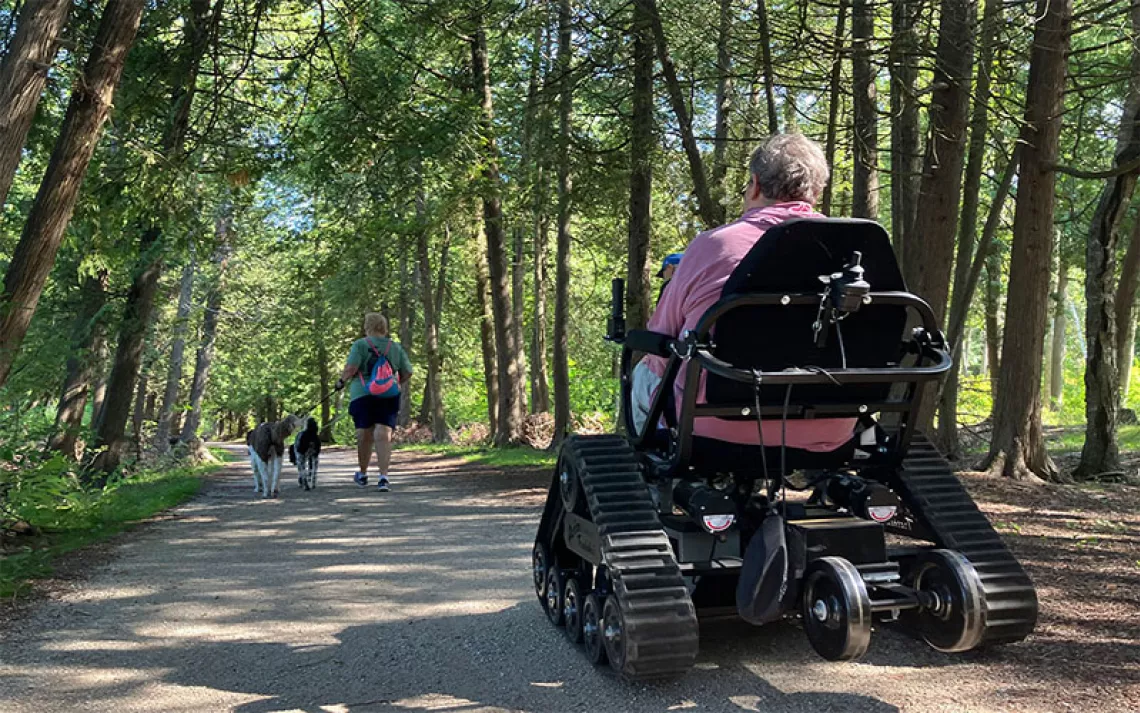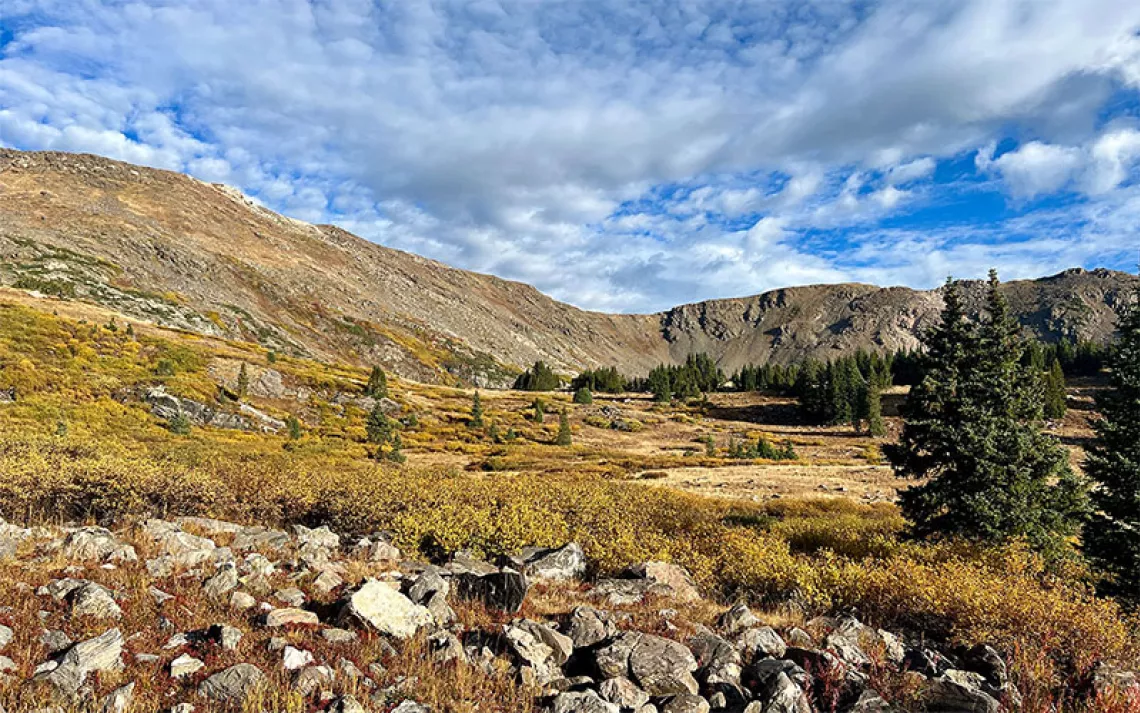Hiking Through Tragedy
How the Pacific Crest Trail helped one grieving thru-hiker heal
Kira Sandiford hiked the Pacific Crest Trail’s entire 2,600 miles last year, but long before then, her mind was on the trail.
She grew up in Los Angeles, hiking on Sundays with her grandmother, who loved and often talked of the trail. “When I was in college, she would clip out news stories about it and send them to me,” Sandiford says.
Sandiford wanted to pursue a career in outdoor education, but she had only ever experienced the outdoors in short bursts or in a professional capacity. She sought to push herself further; hence, the decision to hike the legendary Pacific Crest Trail. Beforehand, Sandiford spent seven months dehydrating all of her own food—“I was kind of an oddball,” she admits—and then transitioned to a very different kind of lifestyle than the one she knew in Los Angeles. “You wake up and you eat breakfast, you get dressed, you take down your tent, and you walk,” she says. And walk, and walk.
For weeks, that was the routine. Until she hit mile 790. Rounding Kearsarge Pass and approaching the trailhead to Independence, California, Sandiford walked into her brother, uncles, and other family members. They had come with urgent news: Her parents had been killed in a car accident.
Suddenly, Sandiford found herself hiking for a very different reason. “It was no longer me doing it to see if I can do it,” she says. “It was me doing it because I needed to do it, and I didn’t know what else to do.” In retrospect, she says she can’t imagine how she would have dealt with her parents’ death had she not been on the trail for the next several months.
 The Magazine of The Sierra Club
The Magazine of The Sierra Club






